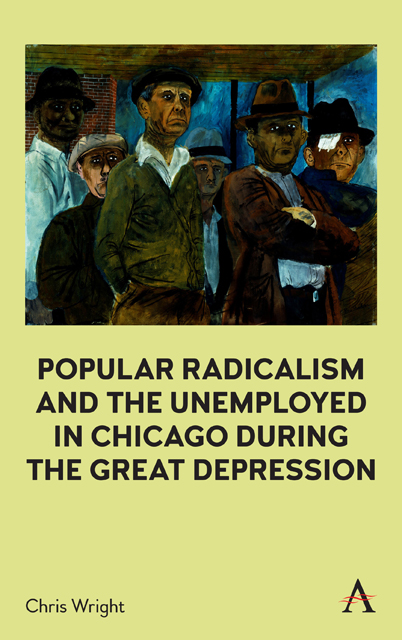Chapter Two - Hardship
Published online by Cambridge University Press: 09 December 2022
Summary
“Any city, however small, is in fact divided into two, one the city of the poor, the other of the rich.” So said Plato in fourth century BC; so say many social critics in the twenty-first century AD. And so was certainly the case in the 1930s, of no city more than of Chicago. At the same time as the Daily News was reporting on high society and high fashion—embroidered dinner frocks, gold mesh peplums, debutantes attending balls dressed in gowns of white chiffon with silver sequins—the Daily Worker was reporting of Chicagoans dropping dead from “pure hunger,” police officers killing Black men protesting an eviction, and thousands of children suffering from acute malnutrition and disease. The jobless and the poor were not likely to receive much consideration from a city legendary for its political corruption, its gangsterism, its violence and police brutality, where the wealthy class of bankers and businessmen was largely refusing to pay its taxes in the early 1930s—so much so that in one year, for example, Silas Strawn, head of the U.S. Chamber of Commerce and a multimillionaire, paid a property tax of only $120, and many other businessmen paid taxes as low as $20—a city where, for the sole purpose of preventing a rise in taxes to pay for relief and social services, “a group of bank presidents, department-store heads, and chiefs of manufacturing companies” could openly take control of the government for a brief period in 1932 and force cuts in “extravagant” expenditures. In such a city, it is not surprising that the suffering among the jobless should be “immeasurably worse than in any other section or city” in the country, to quote a contemporary observer. Nor is it surprising that, in light of the blithe disregard of the wealthy, “the real burden of this crisis [should be] borne not by any relief agency, but by the poor sharing with the poor,” as stated in a 1932 report by the Chicago Workers’ Committee on Unemployment (WCU). “Small merchants, landlords, milkmen, school teachers, who have little or nothing themselves, are strain¬ing their own resources to the breaking point to help their neighbors, relatives, and friends.”
- Type
- Chapter
- Information
- Publisher: Anthem PressPrint publication year: 2022



